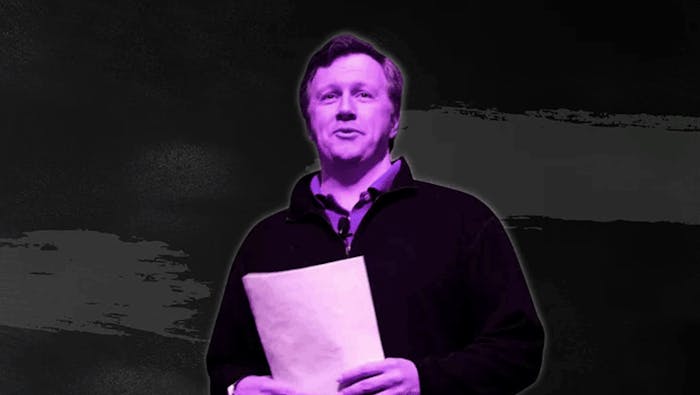Paul Graham explains when to do what you
love
Paul Graham breaks down exactly who should do what they love, and who shouldn't.

Following the success of “Founder Mode,” Paul Graham is back with another thought-provoking essay, “When To Do What You Love.”
It’s a question that every ambitious person, especially founders, has had to grapple with. Do the sure thing, or pursue your riskier passion?
To Graham, the answer is nuanced. As he puts it, the “question is impossible to answer with a simple yes or no.” So, he breaks the question down into several different categories.
Graham’s advice
Category one is if you want to make money. In this case, you probably won’t be able to do what you love unless people will pay you lots of money to do it. The example he cites is football. If you love football and can make the NFL, you’ll make tons of money doing what you love.
The problem with this is that people usually love the same things, making it really hard to stand out. Tens of millions of people love playing football, but barely any of them make the NFL. So, it works better if you have strange tastes. It’s a hell of a lot easier to make money doing something like writing software for customers than playing football.
Category two is if you want to make tons of money. In this case, you have to pursue what you love because the best way to make huge amounts of money is to start a startup, and the best startup ideas come from working on what interests you. This is especially true if you're young and good at technology. As a16z partner Chris Dixon says, “What the smartest people do on the weekends is what everyone else will do during the week in ten years.”
Category three is if you’re not sure what you want. Graham says the solution here is to work on things that interest you. By doing that, you get more certainty on what you’re interested in, how good you are at them, and how much scope they offer for ambition.
If you’re unsure where to start, Graham suggests looking at who your colleagues will be (as you often become like your colleagues) and doing stuff that maintains optionality (for example, majoring in math instead of economics because math is upwind of economics).
Category four, the final category, is if you want to do great work. If that describes you, then you need to work on what interests you the most because the “root of great work is a sort of ambitious curiosity, and you can't manufacture that.”
Zoomers, pay attention
Most of the commentary on the article was positive, but something that I didn’t see people discussing is how relevant it is for Gen Z. Scarred from the Great Recession, Covid, and student loans; they are famously financially nihilistic. However, they are also incredibly ambitious.
Basically, Zoomers simultaneously want to be rich and believe the world is designed to work against them, so they are either flocking to lucrative but passionless careers like finance or safe blue-collar work like plumbing. They also do a lot of freelance work on the side, but even the majority of those Zoomers would prefer to have a regular job with a stable paycheck.
However, I think that can change soon.
The AI explosion
When I talk to a successful founder, I always ask them how they think the world will be different in five years. Almost unanimously, they say that the proliferation of AI will change everything. Yes, it’ll displace a lot of people, but it’ll also empower people with skills they otherwise wouldn’t have. With AI, anyone can be a coder, designer, or SEO expert.
In this world, our young Zoomers in finance and consulting are likely the first to feel the negative effects of AI, but they will also be the ones in the best position to take advantage of the cost of intelligence being near zero. They will be able to combine the skills that come from being digitally native with all of the powers of AI.
In other words, the meme that Paul Graham described in his article is changing from:

To:

Zoomers will soon have time on their hands, an intense desire to be rich, and every technical skill in the world, leading to a Cambrian explosion in makers.
So, if you’re an existing founder, solidify your moat now before the horde arrives.

This reminds of a previous essay he wrote, that I loved - how to do great work. A mixture of passion, depth of expertise, and pushing boundaries: https://paulgraham.com/greatwork.html
Yeah that one's a classic.
Copy a product you like, and in the process it can become something else.
That's definitely one method of doing things.
"leading to a Cambrian explosion in makers"
🤩
"So, if you’re an existing founder, solidify your moat now before the horde arrives."
😼
Prepare now, prosper later.
Loved this insights!
Thank you!
Another option is that if we don't know what we are interested in or what we want to do, we can first learn something and make it, such as programming or going to GitHub
Very true! It really lowers the barrier to entry.
Great insights from Paul Graham! It’s inspiring to see the emphasis on finding the right time to pursue what you love, balancing passion with practicality in a startup journey.